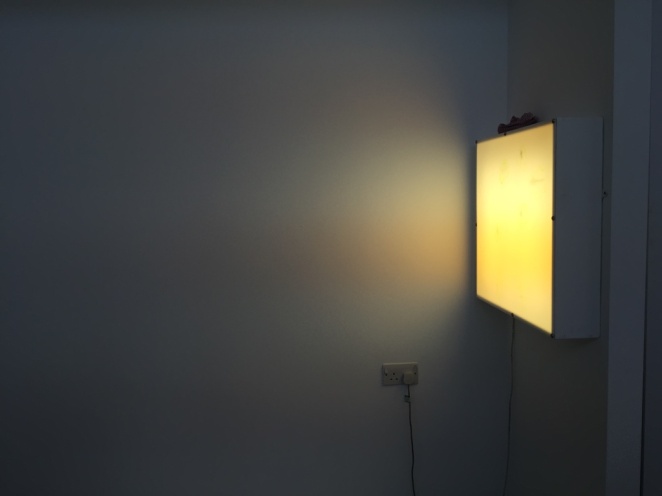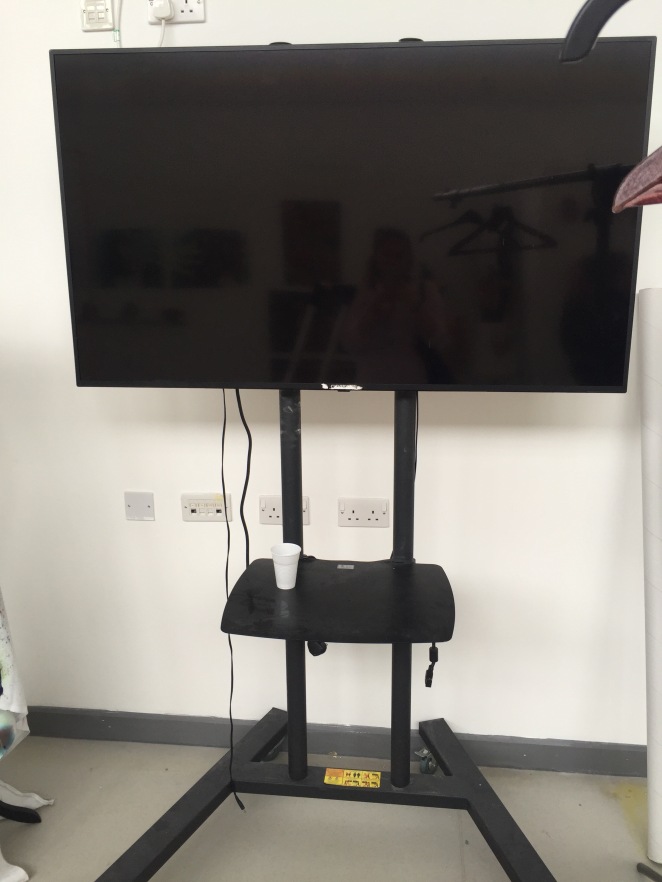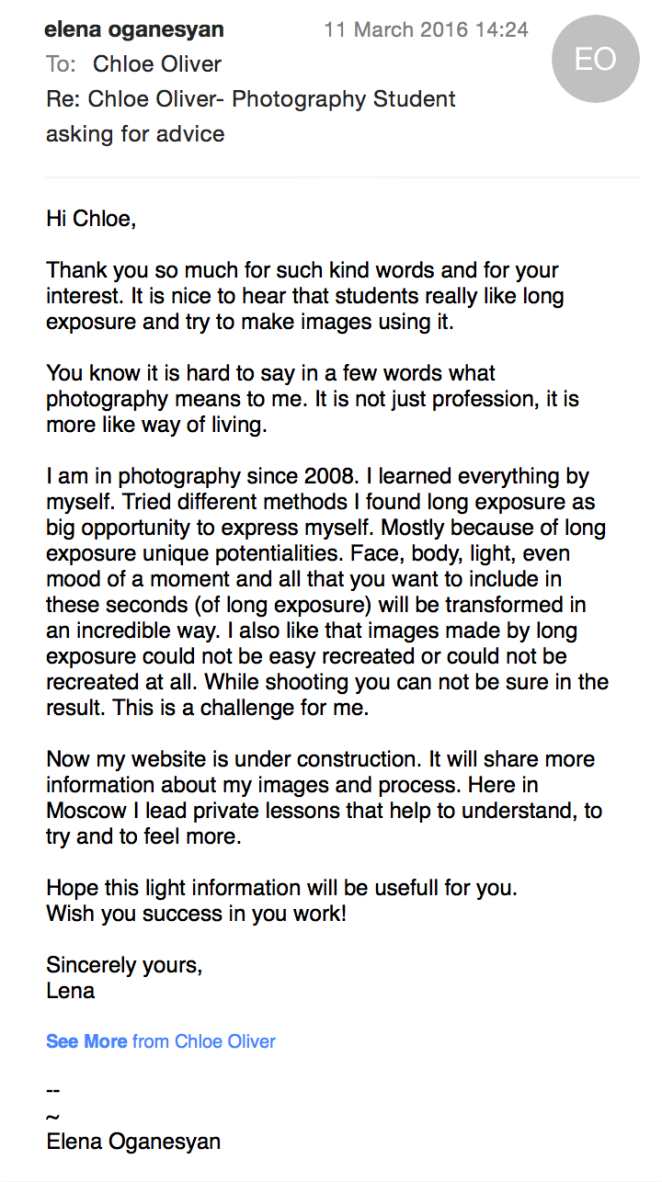After having a tutorial with Jo on how I should present my images, we came to this conclusion;
- Use originals images; I scanned my images and reprinted them but all the same size as Jamie had recommended that concept to me as he thought it may look more effective. This idea didn’t work out as well as using my original images and I felt that it would make my exhibit more authentic using the real images, and the variety of scales would look more interesting.
- Display the images in a more creative and perhaps three dimensional manner- not just framing them or hanging them on the white exhibition wall.
- Research photography exhibitions on Pinterest to find inspiration; hang images on string with bull dog clips or put the images on lightboxes.
When I had finished the tutorial, I went home and researched further into different methods for displaying my images. I looked on Pinterest and searched things like lightbox photography displays and photography exhibitions. Below are some ideas and artists I had found:
Tris Vonna-Michell: Use of Light boxes and Projection
I liked this idea of displaying images. I find the use of light in art is a powerful tool and can manipulate the image and meaning. I think using a lightbox to exhibit my images would be an effective way and I feel that it will highlight and capture the imagery effectively in the photographs. I found that juxtaposing the natural light in the photos with artificial light that the lightbox produces would make for an interesting appearance.
I looked more into the use of light boxes in photography exhibitions and found some examples on Pinterest.
I liked the diverse ways you could use light boxes or even just light. These methods are very effective and like the outcome it creates. I feel that these ideas are too big however and wouldn’t fit in the exhibition space that I have; especially taking into consideration everyone else in the exhibition so these displays wouldn’t work. Although these ways wouldn’t work, I could still use them as inspiration to create a smaller exhibit that is influenced by this research.
I found other artist exhibitions who used light which I found interesting.
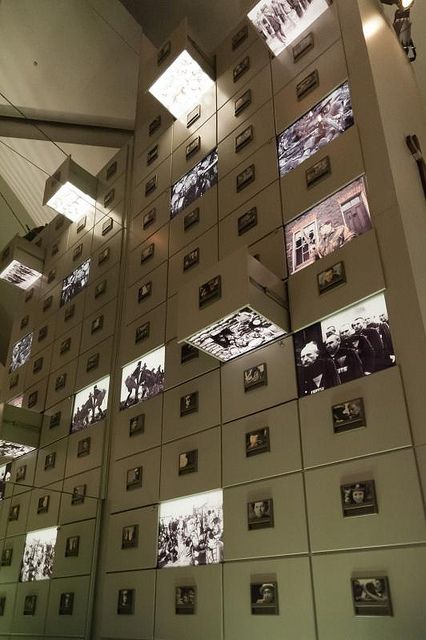
Imperial War Museum, Manchester.
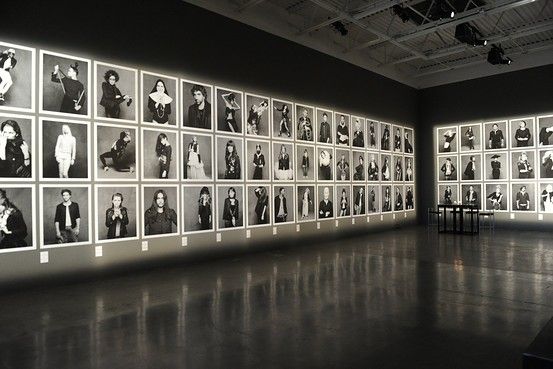
Karl Lagerfeld on the Little Black Jacket
Snapshot Memento: Scenography for a Photography Exhbition
Below is the link to the page which describes the ideas and concepts for this photography exhibition and the process which took place in developing the exhibition space.
http://www.designboom.com/readers/snapshot-memento-scenography-for-a-photography-exhibition/
I went on to looking at other methods for displaying photographs in exhibits. Another way was hanging images or using string to connect them all together.
I looked at an artist called Annette Messager who focused on close ups of different body parts and then hanging at different levels and overlaying them over one another , almost connecting the different body parts together.
I find this concept effective and I really like this idea. I feel that this method would work really well with my images as overlapping them and hanging them at different levels would be really interesting, however it wouldn’t be as big of a scale as this.
I found other methods that she’s displayed her images using string as well.
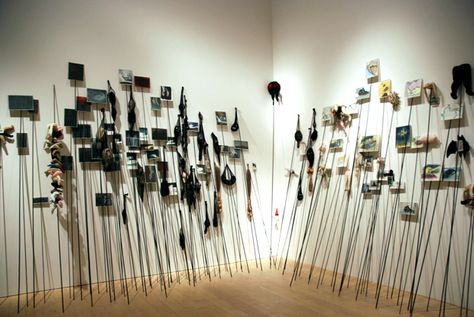
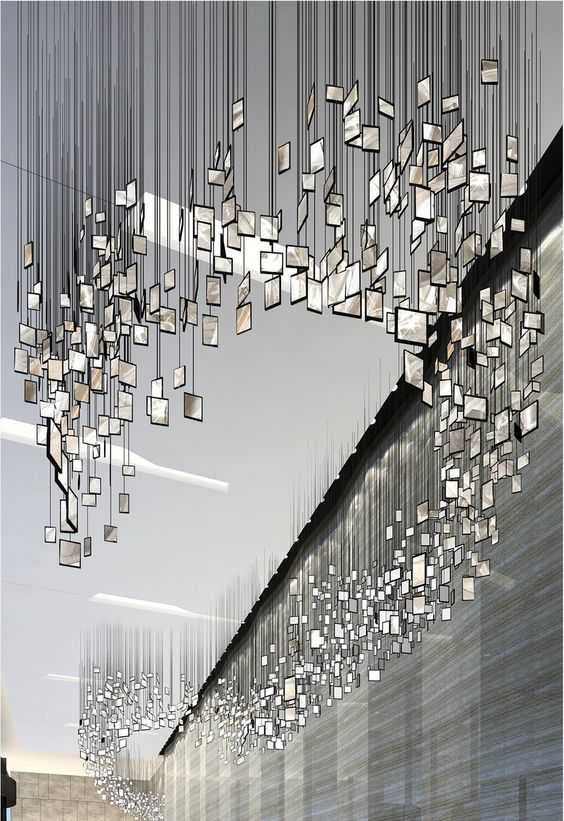
I feel that this method above is an effective way to display photographs; printing the images on acetate so when you look from different angles, you can see right through the image instead of it being blank on one side. I feel that using a different material like acetate is an effective method to exhibiting your photos.
I had also found photos printed onto transparent fabric which was an interesting way also. This method is very effective and unconventional for displaying photographs as they are usually exhibited on high quality paper.
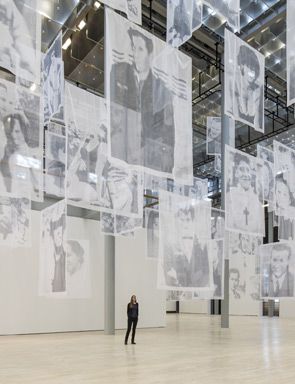
I found other ways of using string to display photographs and found these different methods.
Hanging string like a washing line and clipping the images on using bull dog clips and pegs.
Hanging images using string.
More abstract way of hanging images.
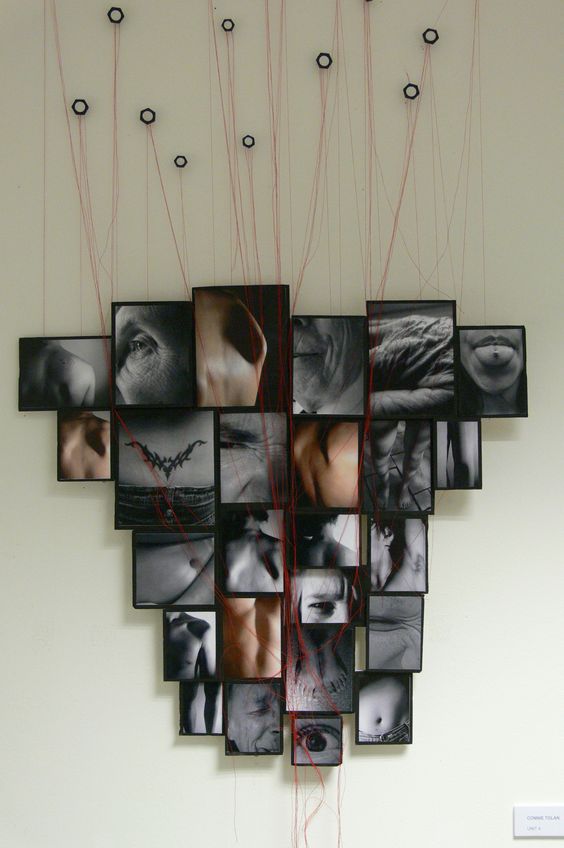
I found these different methods interesting and the presentation very effective in exhibiting photographs. I find these ways influential and will be considered when thinking of how to present my photographs. I like the idea of hanging photographs from clothing lines and pinning them with bulldog clips or pegs.
I also found a photographer called Chloe Ostmo who produced an installation “Falling” of two dimensional images re-inserted into a three dimensional series showing a woman falling down the stairs hence the title “Falling”. She produced the work for her degree show at Brighton University in 2006.
I found more alternate ways of hanging photographs which I found interesting.
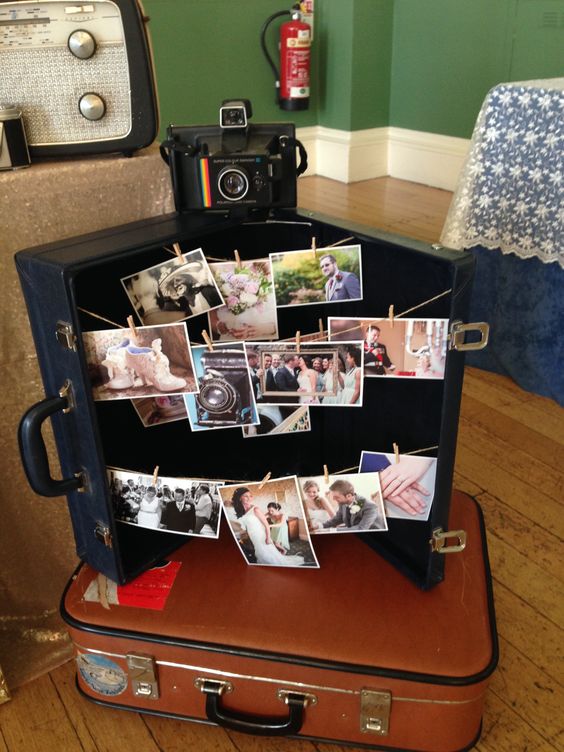
I thought that this was an interesting concept, and seemed more unconventional than just hanging photos. I found it to be a nice idea however, I felt that it may not be suitable for my images.

I liked this method also, I think that this would work well with my project as I have incorporated nature and the environment in my work, so using a branch would be an interesting concept.
I found other displays also like using wooden blocks to attached the photographs to which I really liked and found it effective, however it seemed too much like something you would put in your home not in an exhibition.
I also found a series of bulldog clips attached to a wall with Cyanotype images which I found effective.
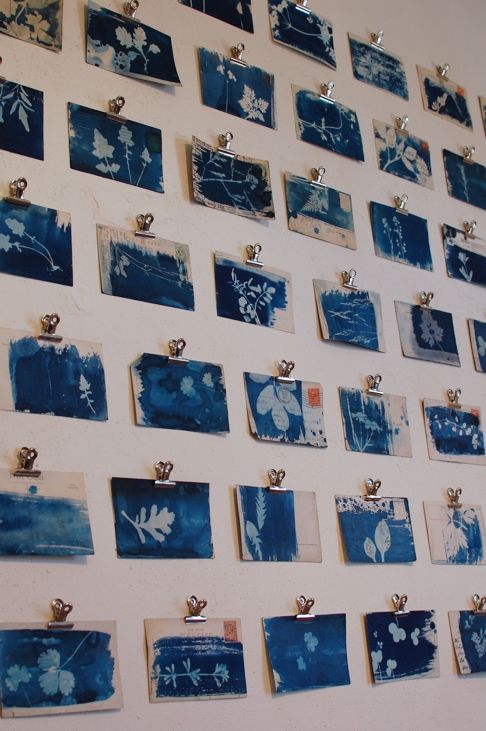
My images are different scales in terms of paper size; 6×4, 5×7 and 10×8 which meant that making an uneven grid of different scaled images would be visually interesting.
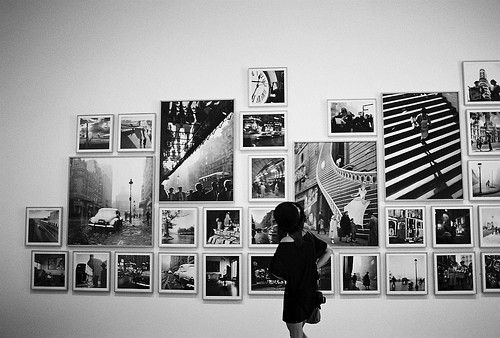
Overall, I found the light box and string ideas most interesting and appropriate for my exhibition and I am thinking of how I could incorporate either one or both of them into my exhibit space.



